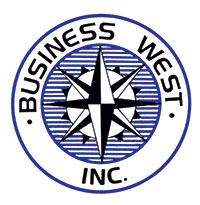By Murrel Bland
The way Kathy Damron sees it, the most likely solution to the financial woes afflicting the State of Kansas would be an increase in the income tax. That was her prediction as she met last Friday, May 12 with the Legislative Committee of the Kansas City, Kansas, Area Chamber of Commerce. She is the lobbyist for the Chamber.
The Kansas Legislature will begin the second week of its “veto session” Monday, May 15 in Topeka. In the past several years, these veto sessions have been the periods when much of the significant legislation has been passed. That was not the intention when such sessions were instituted; most of the legislative action was supposed to occur during the regular session from January through April.
Legislators are faced with an estimated $900 million revenue shortfall for fiscal years 2018 and 2019. In addition, legislators must fund K-12 education adequately to satisfy a Kansas Supreme Court ruling.
Damron said that income tax is where the money is. However, the legislators summarily rejected Gov. Sam Brownback’s proposal for a one-tier income tax earlier this year. The feeling was, particularly among Democrats and moderate Republican legislators, that the one-income tax rate was unfair for moderate and low-income people. What may well pass could be a three-tier income tax rate that is less costly for moderate and low-income taxpayers.
Damron also predicted that the “LLC exemption” that allows small businesses to escape paying state income tax will be repealed. This law was implemented in 2012 as part of Governor Brownback’s business stimulus program. Critics argue it has done little to boost employment.
Other suggestions for raising tax revenue have been a surcharge on utility bills and increasing the tax on cigarettes.
There also have been proposals to increase the gas tax to help fund road work. In the past few years, the state has taken $2 billion originally intended for highway construction and put it elsewhere to balance the state budget. Lobbyists representing highway construction companies have warned that short-changing the Kansas Department of Transportation could do serious harm to roads that should be maintained adequately. However, according to Damron, there appears to be little support for any increase in the gas tax.
When the Supreme Court ruled in the Gannon school case earlier this year, it said the state was not adequately funding schools. However, the court did not specify a dollar amount. One of the plans that the legislature is considering would give schools $150 million a year for five years; a distribution formula also would have to be devised.
Dr. Doris Givens, the President of the Kansas City, Kansas, Community College who serves on the Chamber’s Legislative Committee, said she is concerned about a legislature that cuts the school’s funding, but expects it to train an adequate workforce. She also said she was very worried about the law that would allow the concealed carry of weapons on college campuses and state hospitals. This could cost the college here millions. State Senator David Haley, (R-Fourth Dist.) who attended the Chamber meeting, said that all of the Wyandotte County delegation, except for State Senator Steve Fitzgerald (R-Fifth Dist.), favors legislation that would exempt this gun law on college campuses and state hospitals.
Murrel Bland is the former editor of The Wyandotte West and The Piper Press. He is the executive director of Business West.
